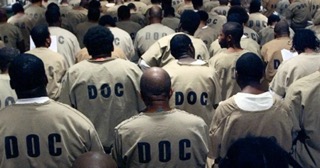
The Forest is Everywhere: How the State is Criminalizing Protest and Dissent in the Fight to Build Cop City
By: Adrianna Carpenter A. Beyond the Cement and Glass: What is Cop City? In southeast Atlanta, there is a forest. This forest is home to wetlands that filter rainwater and prevent flooding.[1] It is also one of the last breeding grounds for many amphibians in the region, as well as being an important migration site for wading birds.[2] Community members enjoy walking their dogs along … Continue reading The Forest is Everywhere: How the State is Criminalizing Protest and Dissent in the Fight to Build Cop City









